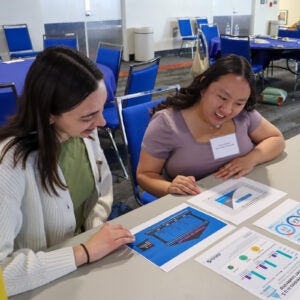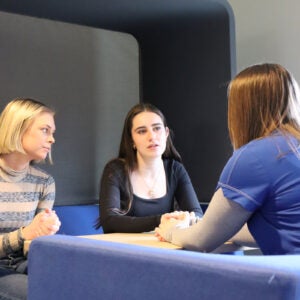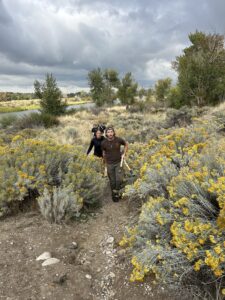Internships
Through partnerships with a wide range of public, private, and nonprofit organizations, the School of Public Service provides opportunities for students to apply classroom knowledge in real-world settings, enhancing their employability and practical skills. With personalized career coaching, resume workshops, and access to exclusive internship databases, SPS ensures its students are well-prepared and positioned for success in their future careers.
The Intern Experience
Internships include paid/unpaid positions and virtual/remote opportunities, all of which lead to the irreplaceable value of experience in action. Students are completely immersed in the “real world” and are thus able to make better choices about their long-term goals and eventual success in the workplace.

Preparation
Preparing for your internship involves determining when and where you’ll gain experience. Complete our Internship Interest form to get started and gain support.

Support
During the internship, you’ll be mentored along the way by a faculty member through our curriculum that is specially designed so you get the most out of your experience.

Feedback
Receiving feedback from your supervisor and faculty is key. This is where you develop skills, become more self-aware, and build confidence in your ability and knowledge. It’s with this feedback, you can tackle your next opportunity, using what you’ve learned from each previous experience to better yourself.
By the numbers
96%
100+
135
$811K
Our graduates agree
“Internships let me ‘test drive’ my career, I learned so much about being on the inside which lead to my dream job.”
– Hayley Littlejohn, Political Science ’21
Internship Process
Prepare
- Submit internship interest form to start the process
- Connect with faculty and staff for internship advising- including exploration of options, resume and application review, interview coaching and resources
Find + Apply
3. Identify and apply to many opportunities
4. Secure an internship offer
5. If necessary, request financial support (included in internship interest form)
Register for Credit
6. Submit an internship application for academic credit through Career Services (optional, complete once internship offer is secured)
7. Receive approval from program internship coordinators and your internship’s site supervisor
8. Check for course to appear in Canvas
Reflect + Complete
9. Complete program-specific internship curriculum (if needed-only when enrolled in credit)
10. Reflect on the experience and add it to your resume! Reach out to sps-ecl@boisestate.edu for help.
Programs
Some SPS programs have specific resources and guidance for your internship. Discover more about your degree’s resources and advising. If your program is not listed, complete the internship interest form and we’ll get you connected.
Contact
Need help in your internship process? Reach out to sps-ecl@boisestate.edu.